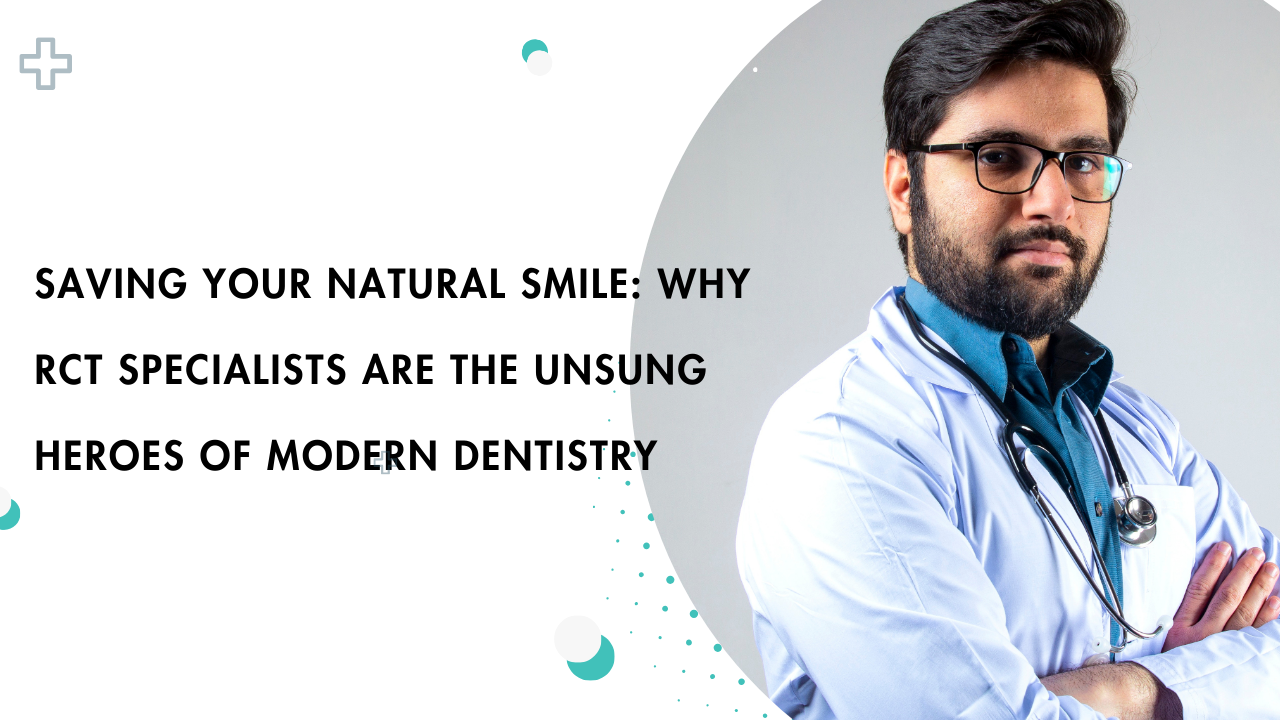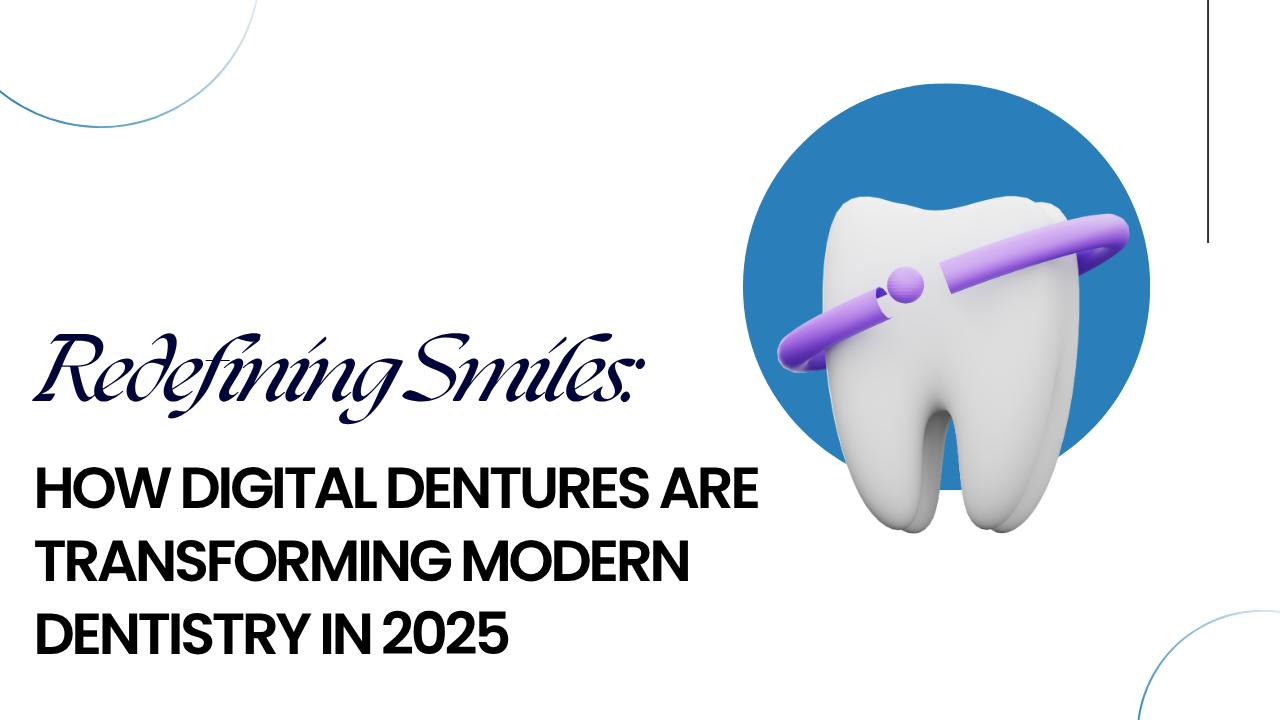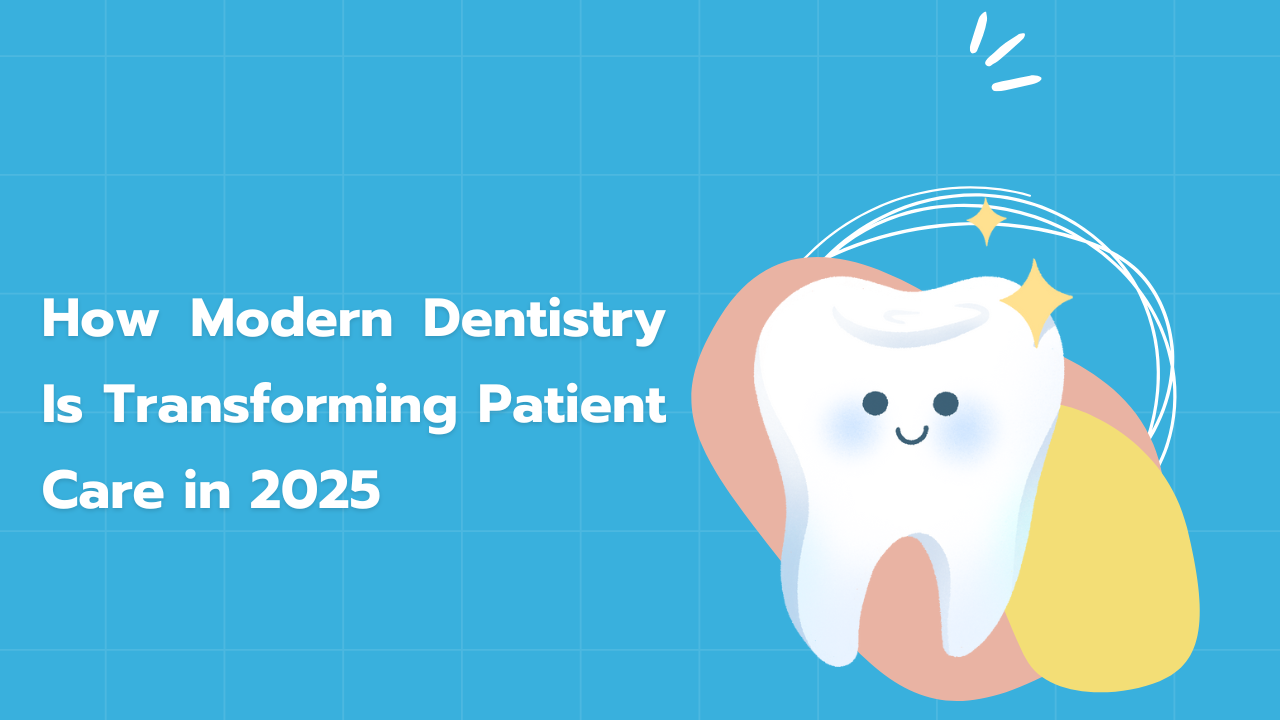There’s a certain comfort in knowing that a problem can be solved. When facing severe tooth pain or infection, many people worry about having their tooth pulled. However, the reality is that in most cases, your tooth can be saved. The professionals who make this possible are root canal treatment (RCT) specialists.
The Hidden Struggle Inside Your Tooth
We seldom consider what happens beneath the surface of our teeth. While the outer enamel is tough and protective, inside is a soft, sensitive core called the dental pulp. This pulp contains nerves, blood vessels, and connective tissue — essentially the tooth’s lifeline.
When bacteria enter this inner area through deep decay, cracks, or injury, the pulp can become inflamed or infected. If left untreated, the infection may spread to the surrounding bone and tissue, causing swelling, severe pain, and even posing risks to overall health.
This is where Root Canal Treatment (RCT) plays a crucial role — a dental procedure that quietly saves millions of teeth every year.
What Is RCT?
Simply put, RCT involves carefully removing the infected pulp, thoroughly cleaning and disinfecting the inside of the tooth, and then sealing it to prevent further infection. It’s like removing a damaged foundation in a house and reinforcing it to keep the structure strong.
The main goal is to preserve your natural tooth, which is important because nothing — not even the most advanced dental implant — can fully replicate the feel and function of your original tooth.
Why Choose an RCT Specialist?
Although many dentists can perform root canals, an RCT specialist, or endodontist, focuses exclusively on diagnosing and treating problems inside the tooth. This specialization offers several important benefits:
1. Extensive Specialized Training
After dental school, RCT specialists complete additional years of focused education. They have experience with all kinds of tooth anatomy, including curved or calcified canals that are hard to detect on X-rays. This expertise allows them to manage complex cases with great accuracy.
2. Use of Advanced Technology
Modern endodontics relies on cutting-edge tools that make treatment more effective and predictable:
- Dental microscopes provide magnified views inside the tooth, revealing details invisible to the naked eye.
- Digital imaging offers high-definition, real-time images of the root structure.
- Rotary instruments enable smoother and faster cleaning.
These technologies not only impress but also significantly improve the success of the procedure.
3. Precision That Preserves
An RCT specialist aims not only to eliminate infection but also to save as much healthy tooth structure as possible. This careful method helps ensure your tooth remains strong for many years after treatment.
4. Focus on Patient Comfort
Thanks to improved anesthesia techniques, most patients find the procedure much less daunting than expected. Pain relief often begins immediately once the infection is treated. That’s why seeing a top root canal specialist near you can transform a frightening experience into a comfortable one.
How to Tell When You Need a Root Canal Specialist
Infections don’t always announce themselves loudly — sometimes they’re subtle. Watch for these signs:
- Ongoing tooth pain that persists well after eating or drinking
- Sensitivity to hot or cold that lingers
- Swelling around the gums near a tooth
- Tooth darkening or discoloration
- A small bump resembling a pimple on the gum
These symptoms indicate your body is signaling a problem that needs prompt attention.
Why Acting Early Is Important
A tooth infection won’t resolve on its own. The longer it remains untreated, the more damage it causes to both the tooth and surrounding tissues. Early treatment offers:
- Reduced pain
- Better chances of saving the tooth
- Shorter treatment duration
- Lower overall costs
The saying “prevention is better than cure” truly applies when it comes to dental health.
The Root Canal Treatment Process — What to Expect
If you haven’t undergone a root canal before, understanding the procedure can ease your concerns:
1. Diagnosis: The dentist or specialist examines the tooth, often using X-rays to determine infection severity.
2. Anesthesia: Local anesthesia is given to keep you comfortable during the procedure.
3. Access: A small opening is made to reach the pulp chamber and root canals.
4. Cleaning: The infected pulp is removed, and the canals are cleaned and shaped.
5. Sealing: The canals are filled with a biocompatible material to prevent future infection.
6. Restoration: The tooth is restored with a filling or crown to protect it and restore function.
Though it may sound complex, the procedure is routine for specialists and usually completed in one or two visits.
Benefits of Seeing a Root Canal Specialist
Selecting a qualified root canal specialist near you is about more than convenience — it ensures the best results:
- Higher success rates: Specialists achieve better long-term outcomes.
- Expert handling of complex cases: Unusual root structures or hidden canals are more effectively treated.
- Fewer complications: Their expertise reduces risks like missed canals or incomplete cleaning.
- Faster recovery: Precise treatment minimizes trauma, speeding healing.
Root Canal Treatment in 2025 — The Latest Approach
Modern dentistry prioritizes saving natural teeth whenever possible. Whereas extraction was once common for severe infections, advanced root canal techniques and technology now make removal a last option.
This shift is supported by:
- Increased patient awareness of long-term oral health
- Improvements in restorative dentistry combining root canals with durable crowns
- Minimally invasive methods that preserve more of the original tooth
As a result, your smile has a better chance of being preserved than ever before.
Common Misconceptions About Root Canal Treatment (RCT) — And the Facts
Although we’re not covering FAQs here, it’s important to clear up a frequent misunderstanding: that RCT is painful. The truth is, with modern methods, it’s no more uncomfortable than having a dental filling. Most patients say the worst pain occurs before the procedure, not during or afterward.
How to Care for Your Tooth After RCT
A root canal preserves your tooth, but proper aftercare is key to its longevity:
– Maintain excellent oral hygiene by brushing twice daily and flossing every day
– Follow your dentist’s recommendations regarding crowns or additional restorations
– Avoid chewing hard foods on the treated tooth until it is fully restored
– Keep up with regular dental check-ups to monitor the tooth’s condition
With the right care, a tooth treated with RCT can last a lifetime.
In Conclusion, Your Smile Is Worth Saving
Tooth pain can be frightening, especially when you fear losing a tooth. However, thanks to the expertise and precision of RCT specialists, you have a much better option: saving your natural tooth. Their skill, combined with advanced technology and patient-centered care, means that today’s root canal treatment is nothing like the scary stories from the past. It’s a simple, comfortable, and highly effective way to preserve your natural smile.
If you suspect an infection, don’t delay. Find a reputable root canal specialist near you and take the first step toward lasting relief and a healthier smile.
Final Note — Dr. Varun’s Smile World
If you’re in Kerala and seeking outstanding dental care, Dr. Varun’s Smile World provides cutting-edge root canal treatments using advanced technology and a patient-focused approach. Renowned for precision, comfort, and high success rates, the clinic is a trusted choice for expert dental care. Whether you need to save an infected tooth or improve your smile, Dr. Varun’s team is committed to delivering the highest quality treatment — because your smile deserves the best.




